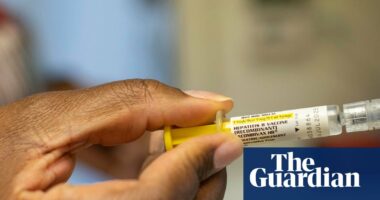Share this @internewscast.com
Device removes guesswork from insulin therapy, reduces low blood sugar episodes, study finds
Researchers are having success with a new device that monitors and controls glucose levels for Type 1 diabetics, a study finds caffeine has different effects on boys and girls after they reach puberty — and more. Alison Harmelin reports on the day’s top health headlines.
Diabetes is a disorder in blood glucose levels. Glucose is a sugar that serves as fuel for the body. When blood glucose levels rise, beta cells in the pancreas normally make and secrete the hormone insulin, which triggers cells throughout the body to take up sugar from the blood.
In type 1 diabetes, the body’s own immune system attacks and destroys beta cells. People with type 1 diabetes thus need to take insulin to maintain blood glucose levels within a certain range to prevent life-threatening complications. Current treatments for type 1 diabetes include carbohydrate counting, careful monitoring of blood glucose, and adjusting insulin dosing in response.
A research team led by Drs. Steven J. Russell of Massachusetts General Hospital and Edward R. Damiano and Firas El-Khatib of Boston University developed and tested a bionic pancreas. The system consists of a smart phone that wirelessly communicates with 2 pumps. The pumps deliver either insulin or glucagon (a hormone that increases blood glucose levels) through tubing that goes under the skin. The hormones are administered based on readings provided to the smart phone every 5 minutes from a continuous glucose monitor. In previous short-term studies, the scientists showed that the device could maintain blood glucose levels close to normal in both adults and children in carefully controlled environments.

In their new study, the team set out to assess the safety and effectiveness of the system in a home setting. The research was supported by NIH’s National Institute of Diabetes and Digestive and Kidney Diseases (NIDDK) and National Center for Advancing Translational Sciences (NCATS). Results were published online on December 20, 2016 in the Lancet.
The scientists enrolled 39 adults with type 1 diabetes. Participants were randomly assigned to receive the bionic pancreas or usual care (conventional or sensor-augmented insulin pump therapy). They completed one treatment for 11 days, and then the other for the same period. Participants were remotely monitored. They engaged in normal activities during both treatments, including athletics and driving.
The researchers found that participants had better blood glucose regulation with the bionic pancreas. They had lower average blood glucose levels (141 mg/dl vs. 162 mg/dl). They also spent less time with blood sugar levels less than 60 mg/dl (0.6% vs. 1.9%). There were no serious or unexpected side effects in the bionic pancreas phase of the study, although more participants experienced nausea.
“This system requires no information other than the patient’s body weight to start, so it will require much less time and effort by health care providers to initiate treatment. And since no carbohydrate counting is required, it significantly reduces the burden on patients associated with diabetes management,” Russell says.
NIH is planning larger and longer studies to further assess the benefits and risks of the automated bionic pancreas















